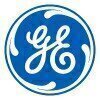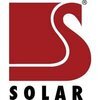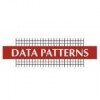Filter interviews by
Defence Research & Development Organisation Interview Questions and Answers
41 Interview questions
AT commands are instructions used to control modems and communication devices, enabling various functionalities like dialing and messaging.
AT stands for Attention, and commands typically start with 'AT'.
Common commands include 'ATD' for dialing a number and 'ATH' for hanging up.
Used in GSM modems for sending SMS with 'AT+CMGS' command.
AT commands can also configure modem settings, like 'AT+CSQ' for signal quality.
AT commands are instructions used to control modems and communication devices via a serial interface.
AT commands start with 'AT' followed by command letters, e.g., 'AT+CSQ' for signal quality.
Common commands include 'AT+CMGF' to set SMS mode and 'AT+SEND' to send messages.
Use 'AT+CREG?' to check network registration status.
AT commands can be sent via terminal software or embedded in applications.
I have extensive experience in creating and managing technical documentation across various industries, ensuring clarity and usability.
Developed user manuals for software applications, focusing on step-by-step instructions and troubleshooting tips.
Created API documentation that included code examples and use cases to assist developers in integration.
Collaborated with engineering teams to produce product specificat...
Supervised learning uses labeled data for training, while unsupervised learning identifies patterns in unlabeled data.
Supervised learning requires labeled datasets, e.g., predicting house prices based on features like size and location.
Unsupervised learning works with unlabeled data, e.g., clustering customers based on purchasing behavior.
In supervised learning, the model is trained to map inputs to known outputs,...
Data types define the kind of data a variable can hold, influencing operations and memory usage.
Primitive types: Basic data types like int, float, char. Example: int age = 25;
Composite types: Combinations of primitive types. Example: struct in C or classes in Java.
Abstract types: User-defined types that encapsulate data and behavior. Example: List in Python.
Reference types: Store references to objects rather than ...
A function is a reusable block of code that performs a specific task, taking inputs and returning an output.
Functions help in organizing code into manageable sections.
Example: A function to calculate the area of a rectangle: `def area(length, width): return length * width`.
Functions can take parameters and return values, enhancing reusability.
Example: A function that converts Celsius to Fahrenheit: `def celsius_to...
Joining your team aligns with my passion for Qt development and my desire to contribute to innovative projects.
I have extensive experience with Qt, having developed multiple applications that enhance user experience.
Your company's commitment to cutting-edge technology resonates with my career goals.
I admire your focus on collaboration and teamwork, which I believe fosters creativity and innovation.
I am eager to le...
I have extensive experience in Qt development, focusing on cross-platform applications and UI design.
Developed a cross-platform application using Qt that improved user engagement by 30%.
Implemented custom widgets in Qt to enhance user experience in a financial application.
Collaborated with a team to migrate a legacy application to Qt, resulting in a 50% reduction in maintenance costs.
Utilized Qt's model-view archi...
I have gained valuable experience through internships and projects, enhancing my research skills and teamwork abilities.
Interned at XYZ Lab, where I assisted in data collection and analysis for a project on renewable energy.
Collaborated with a team of researchers to publish a paper on the effects of climate change on local ecosystems.
Participated in a summer research program focused on machine learning application...
Stress strain curve shows the relationship between stress (force applied) and strain (resulting deformation) in a material.
It is a graphical representation of the behavior of a material under loading.
The curve typically consists of three regions: elastic deformation, plastic deformation, and fracture.
The slope of the curve in the elastic region represents the material's stiffness or Young's modulus.
The ultimate te...
Defence Research & Development Organisation Interview Experiences
73 interviews found
I appeared for an interview in Sep 2024.
(2 Questions)
- Q1. Which field will we focus more?
- Ans.
We will focus more on practical applications and real-world problem-solving in our field.
Emphasis on hands-on experience, such as internships or projects.
Collaboration with industry professionals to gain insights.
Utilizing case studies to understand real-world challenges.
Incorporating technology and innovation in our approach.
- Q2. What are the chances that I’ll select im your interview process?
GD should be in current market scenario topics, which will lead the following company for it’s future growth, development and profitability.
(1 Question)
- Q1. Major questions i got from DSA, Network Security and CyberSecurity.
It was quite good! I could solve major problems .
It was moderate and i could solve some coding problems.
Interview Preparation Tips
I applied via Referral and was interviewed in Aug 2024. There were 3 interview rounds.
(2 Questions)
- Q1. What are the steps to create a chat bot in python
- Ans.
Creating a chat bot in Python involves several steps such as defining intents, training the model, and integrating with messaging platforms.
Define intents and entities for the chat bot using a natural language processing library like spaCy or NLTK.
Train the chat bot model using a machine learning framework like TensorFlow or PyTorch.
Integrate the chat bot with messaging platforms like Facebook Messenger or Slack using ...
- Q2. What are libraires are used for web automation
- Ans.
Some libraries used for web automation are Selenium, Puppeteer, and Playwright.
Selenium is a popular choice for automating web browsers across many platforms.
Puppeteer is a Node library which provides a high-level API to control Chrome or Chromium over the DevTools Protocol.
Playwright is a Node library for automating browsers, including Chromium, Firefox, and WebKit.
Write a python code to view the list of USB devices used in a system
(1 Question)
- Q1. How is your social media life?
- Ans.
My social media life is active and engaging, with a focus on networking and sharing professional insights.
I use platforms like LinkedIn and Twitter to connect with industry professionals and share relevant articles and research.
I participate in online forums and groups related to AI and ML to stay updated on the latest trends and developments.
I maintain a professional online presence by sharing my own projects and acco...
Interview Preparation Tips
- Python
- NLP
- Machine Learning
Skills evaluated in this interview
(1 Question)
- Q1. What are the different equations of thermodynamics ?
- Ans.
The different equations of thermodynamics describe the relationships between energy, heat, and work in a system.
The first law of thermodynamics: ΔU = Q - W, where ΔU is the change in internal energy, Q is heat added to the system, and W is work done by the system.
The second law of thermodynamics: ΔS ≥ 0, where ΔS is the change in entropy of a closed system.
The ideal gas law: PV = nRT, where P is pressure, V is volume, ...
Interview Preparation Tips
To design a responsive website using react framework and implement ui using bootstrap and integrate api provided for real time updates
(1 Question)
- Q1. Discussion about project
(5 Questions)
- Q1. Basics of thermodynamics like entropy of universe, Basics of SOM, Mechanics etc
- Q2. Past company experience
- Q3. Modelling related
- Q4. Future plans after jrf
- Ans.
I plan to pursue a PhD in my field of research and eventually work in academia or industry.
Continue research in my area of interest
Apply for PhD programs
Explore opportunities in academia or industry
Attend conferences and publish research papers
Network with professionals in the field
- Q5. Self introduction
(1 Question)
- Q1. Basic electrical engineering questions and ai deep learning basics
I appeared for an interview in Dec 2024, where I was asked the following questions.
- Q1. What is AT command
- Ans.
AT commands are instructions used to control modems and communication devices, enabling various functionalities like dialing and messaging.
AT stands for Attention, and commands typically start with 'AT'.
Common commands include 'ATD' for dialing a number and 'ATH' for hanging up.
Used in GSM modems for sending SMS with 'AT+CMGS' command.
AT commands can also configure modem settings, like 'AT+CSQ' for signal quality.
- Q2. What is project in Internship from DRDO
- Ans.
A project in an internship at DRDO involves hands-on experience in defense research and development, focusing on innovative technologies.
Interns may work on projects related to missile systems, such as developing guidance algorithms.
Involvement in simulation and modeling of defense systems to enhance performance.
Collaboration with experienced scientists and engineers to gain insights into defense technologies.
Opportuni...
- Q3. How to work AT command
- Ans.
AT commands are instructions used to control modems and communication devices via a serial interface.
AT commands start with 'AT' followed by command letters, e.g., 'AT+CSQ' for signal quality.
Common commands include 'AT+CMGF' to set SMS mode and 'AT+SEND' to send messages.
Use 'AT+CREG?' to check network registration status.
AT commands can be sent via terminal software or embedded in applications.
(2 Questions)
- Q1. Subjects of interest
- Q2. Previous projects
- Ans.
I have worked on various projects during my academic studies, including a marketing campaign for a local business and a research project on consumer behavior.
Developed a marketing campaign for a local business to increase brand awareness and customer engagement
Conducted research on consumer behavior to analyze purchasing patterns and preferences
Collaborated with a team to design and implement strategies for project suc...
(2 Questions)
- Q1. Why do you want to join drdo
- Ans.
I want to join DRDO to contribute towards national security and work on cutting-edge technology.
Passion for defense and security technology
Desire to work on innovative projects
Opportunity to make a meaningful impact
Excitement to be part of a prestigious organization
- Q2. What are your skills and experiences
- Ans.
I have strong communication skills, experience in project management, and proficiency in data analysis.
Strong communication skills - effectively communicate with team members and stakeholders
Experience in project management - successfully led a team to complete a project on time and within budget
Proficiency in data analysis - able to analyze large datasets and draw meaningful insights
Top trending discussions






Defence Research & Development Organisation Interview FAQs
The duration of Defence Research & Development Organisation interview process can vary, but typically it takes about less than 2 weeks to complete.
Tell us how to improve this page.
Defence Research & Development Organisation Interviews By Designations
- Defence Research & Development Organisation Intern Interview Questions
- Defence Research & Development Organisation Junior Research Fellow Interview Questions
- Defence Research & Development Organisation Research Intern Interview Questions
- Defence Research & Development Organisation Scientist Interview Questions
- Defence Research & Development Organisation Design Engineer Interview Questions
- Defence Research & Development Organisation Senior Research Fellow Interview Questions
- Defence Research & Development Organisation Graduate Trainee Interview Questions
- Defence Research & Development Organisation Software Engineer Interview Questions
- Show more
Interview Questions for Popular Designations
Overall Interview Experience Rating
based on 62 interview experiences
Difficulty level
Duration
Interview Questions from Similar Companies
Defence Research & Development Organisation Reviews and Ratings
based on 823 reviews
Rating in categories
|
Design Engineer
203
salaries
| ₹2 L/yr - ₹6 L/yr |
|
Junior Research Fellow
147
salaries
| ₹3.2 L/yr - ₹6 L/yr |
|
Project Engineer
133
salaries
| ₹1.9 L/yr - ₹5.2 L/yr |
|
Senior Research Fellow
115
salaries
| ₹4 L/yr - ₹8 L/yr |
|
Contract Engineer
103
salaries
| ₹1.7 L/yr - ₹4.1 L/yr |
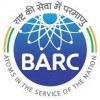
BARC

Indian Army
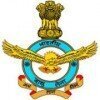
Indian Air Force

Tata Advanced Systems
- Home >
- Interviews >
- Defence Research & Development Organisation Interview Questions




